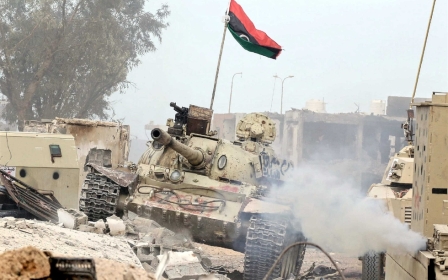Detained Islamic State suspect says Tunisian journalists were executed

A suspected Islamic State (IS) group militant held in eastern Libya said two Tunisian journalists who went missing in 2014 were killed by IS, a television report on Saturday.
Abderrazek Nassef Abderrazek Ali, a Libyan, said he had witnessed the pair being slain execution-style in a forest outside the eastern town of Derna, which was then under IS control.
IS had claimed in January 2015 to have killed blogger Sofiene Chourabi and photographer Nadhir Ktari, but later the same year the Tunisian government said it had evidence the pair was still alive.
On Sunday, Tunisia's foreign ministry said in a Facebook post that it was trying to verify the authenticity of the claim through legal and diplomatic channels in coordination with Libya.
The prisoner told the Al-Hadath al-Libya channel the two journalists had been captured at an IS roadblock between the towns of Ajdabiya and Labraq and then taken to Derna.
He said an IS "court" had ordered them killed on the basis of testimony from Tunisian militants.
Al-Hadath Al-Libya is close to eastern Libya's military strongman Marshal Khalifa Haftar.
The channel said the suspect, who was shown shaven-headed and wearing an orange jumpsuit, was being held by Haftar's forces.
Relatives of the two journalists conducted a long campaign for information from the Tunisian government on the fate of their loved ones.
Some 3,000 Tunisians have joined the ranks of militant groups fighting in Libya, as well as in Syria and Iraq, according to Tunisian officials.
The United Nations puts the figure at 5,000.
Stay informed with MEE's newsletters
Sign up to get the latest alerts, insights and analysis, starting with Turkey Unpacked
Middle East Eye delivers independent and unrivalled coverage and analysis of the Middle East, North Africa and beyond. To learn more about republishing this content and the associated fees, please fill out this form. More about MEE can be found here.




